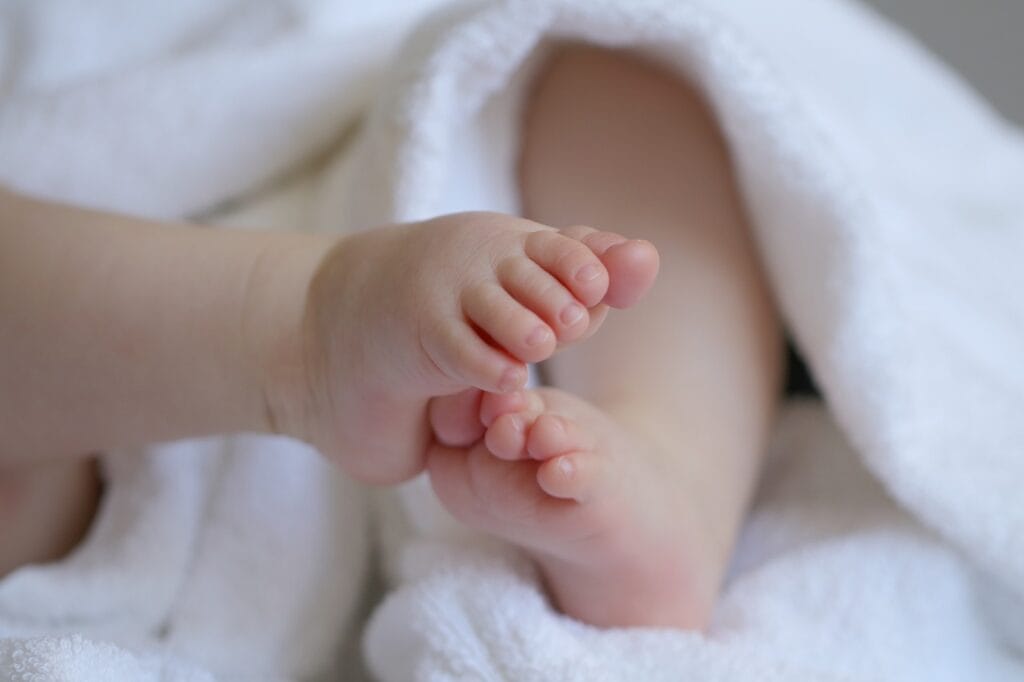At 7 months, a baby’s growth is amazing. They start sitting up and crawling, which are big steps. It’s important for parents to know about these changes and how to support their baby. This guide will help with physical, mental, and emotional growth. It also offers tips on feeding, sleep, and care.

Parents often wonder about their baby’s development at 7 months. What milestones should they expect? With the right info, parents can help their baby grow and reach their best. This time is special for a baby’s development and growth.
Table of Contents
Understanding Your 7 Month Old Baby’s Development
At 7 months, babies grow in many ways. They get better physically, think clearer, and feel more emotions. The American Academy of Pediatrics says this is a key time for baby development at 7 months. It’s when they start to grow in big ways.
Milestones for 7 month old babies include sitting, crawling, and standing with help. These are big steps in their growth stages of a baby.
At this age, babies get better at using their hands and eyes. They can catch and pull objects. They also learn to sit by themselves. About 70% of babies start to feel scared or upset when they see strangers. This is a normal part of growing up.
Babies start to remember things better. They might look for things they dropped. They might say simple words like ‘mama’ or ‘dada’. But they might not really know what they mean. It’s important to watch how they grow and talk to a doctor if you have any worries.
Physical Development Markers
- Improved eye-hand coordination
- Able to sit on their own
- May start pulling themselves up onto their knees or feet
Cognitive Growth Points
- Searching for dropped or covered objects
- Saying simple sounds such as ‘mama’ or ‘dada’
- Improved memory
Social and Emotional Progress
- Developing attachment and trust with caregivers
- May show separation anxiety or fear of strangers
- Using body language to communicate
Physical Milestones to Watch For
At 7 months, babies are making big strides in their physical growth. The Mayo Clinic says most can sit up, crawl, and stand with help. Rolling over in both ways is also common by this age. About 50% of babies can sit on their own, while others need a little help.
Some babies start to scoot, rock back and forth, or crawl across the room. Around 25% can pull themselves up to stand. Many will take steps while holding onto furniture or low tables. Here are some key physical milestones to watch for:
- Rolling over in both directions
- Sitting up with or without support
- Crawling or scooting across the room
- Standing with support
- Transferring toys from one hand to another
These physical milestones are key parts of baby growth stages and baby development stages. Engaging your baby in various 7 month old baby activities can help their physical growth. Always check with your pediatrician if you have any concerns about your baby’s progress.
Feeding Guidelines and Nutrition
At 7 months, babies start eating solid foods like pureed fruits and veggies. They still get most of their nutrition from breast milk or formula. Knowing the feeding schedule for 7 month old babies is key for their growth.
The American Academy of Pediatrics suggests 4 to 5 breast milk or formula feeds a day. Babies should drink about 28-34 ounces daily.
A typical baby feeding schedule includes nursing or bottle feeding 5 times a day. They also have solid meals at set times. Infant nutrition is vital, and parents need to know how much and how often to feed.
Important points for infant nutrition and feeding schedule for 7 month old babies are:
- Most babies have about 4 to 5 breast milk or formula feeds a day
- The average daily intake is roughly 28-34 ounces of breast milk or formula
- Babies typically eat every 3 to 4 hours, with nursing babies possibly eating more frequently
By sticking to a recommended baby feeding schedule and understanding infant nutrition, parents can ensure their baby gets the right nutrients. This helps them grow and develop well.
Sleep Patterns and Routines
Understanding your 7 month old baby’s sleep patterns is key for their growth. They should sleep 12-14 hours in a day, including naps and nighttime. A sleep routine and a cozy sleep space help them sleep well.
A typical 7 month old baby sleep schedule has 2-3 naps a day, with the first nap lasting about 1 hour. They need 2.5 to 3.5 hours of daytime sleep. At night, they sleep 11-12 hours, but some still need a night feeding.
Here are some key points to consider when establishing a sleep routine for your 7 month old baby:
- Average total sleep: 14 hours in a 24-hour period
- Recommended nighttime sleep: 11-12 hours
- Recommended daytime sleep: 2.5-3 hours, split over 2-3 naps
Creating a sleep-friendly environment is also crucial. This means a dark, quiet room at a comfy temperature. A bedtime routine helps your baby know it’s sleep time.
As your baby grows, their sleep needs change. It’s important to be flexible and adjust your approach as needed. By setting a consistent sleep routine and a cozy sleep space, you help your baby develop good sleep habits. These habits support their infant development and overall health.
Essential Care Tips for Your Growing Baby
At 7 months, babies need regular care to grow well. Knowing the 7 month old baby care tips is key for parents. The American Academy of Pediatrics says hygiene, skin care, and oral health are important.
Important baby care tips include daily hygiene and skin care. Oral health, like gum and tooth cleaning, is also crucial. These steps help your baby grow strong during the growth stages of a baby.
Daily Hygiene Practices
Daily hygiene is vital for a baby’s health. This means bathing, diapering, and cleaning hands and face. Regular care stops infections and keeps the baby comfy.
Skin Care Essentials
Skin care is also key for babies. It involves moisturizing, sun protection, and keeping skin clean. Use gentle products and stick to a routine for healthy, happy skin.
Oral Health Basics
Oral health is important for a baby’s growth. This includes gum and tooth cleaning. Start with a soft toothbrush and a little toothpaste, increasing as the baby grows.
Cognitive Development and Learning
At 7 months, babies start solving problems and learning that objects still exist even when they can’t see them. This is key for cognitive development and learning. It helps with emotional and behavioral skills later on. The Mayo Clinic says babies at this age also get better at memory, attention, and planning.
Babies at this stage can use both hands to compare and sort objects. They can tell the difference in sizes and recognize faces from different angles. They also look for objects in the exact spot where they last saw them. This shows their memory is still growing.
Play helps babies learn about “in and out” by dropping and tipping objects from containers. They start to understand how objects work, like shaking toys or pushing buttons. They even start to imitate sounds and words, showing early language skills.

Studies show babies get better at remembering things through actions around this age. They can follow simple gestures and try to make sounds when talking to caregivers. They also start to use toys in creative ways, like banging blocks or shaking noisemakers.
Playing games like hide and seek or in-and-out games is important for their development. By 9 months, babies might understand “in” and “out” through play. Reading books to babies is also key for learning. It can help their vocabulary grow by up to 50% later on.
Engaging Activities and Play Ideas
At 7 months old, babies love to play and learn. They grow by doing activities that help with moving, feeling, and playing with others. The American Academy of Pediatrics says these activities are key for a baby’s growth.
Some fun activities for 7 month olds include reaching and grabbing, touching and tasting, and playing with others. They also enjoy playing with caregivers and responding to their names.
Sensory play is great for babies. It lets them touch different textures and hear various sounds. “Touch and learn” books and musical instruments are perfect for this. Busy boxes and toys that make sounds when played with also grab their attention.
Activities that help with physical growth, like crawling games, are also good. Research shows that reading to babies often can help them learn more words. For example, babies who read interactive books can recognize 40% more words by 12 months.
Some fun activities and play ideas include:
- Peekaboo, which can lead to enhanced social interactions
- Problem-solving activities, which can lead to a 25% higher success rate in cognitive tasks at later developmental stages
- Dancing held by parents, which can show a 35% increase in social engagement metrics by the time they reach one year old
By adding these activities to daily play, parents can help their baby grow a lot. Especially in the first year. It’s important to pick toys that are right for their age. Toys with different shapes, sizes, colors, and textures are best for their curiosity.
Health and Safety Considerations
As a parent, keeping your 7-month-old baby healthy and safe is key. At this age, babies are full of curiosity and move around more. This makes them more likely to get hurt. The Centers for Disease Control and Prevention say it’s important to stick to a vaccination schedule to avoid sicknesses like fever and diarrhea.
It’s also crucial to know how to keep your baby safe. Make sure furniture is stable, put up safety gates at stairs, and lock cabinets. Watch out for things that could choke your baby, like small objects that fit through a toilet paper roll.

To help your baby grow and stay healthy, watch their environment closely. Keep an eye on them when they’re in the bath, as drowning can happen quickly. Also, be aware that old houses might have lead paint, which is harmful if your baby eats or breathes it in.
Here are some important baby safety tips to remember:
- Install childproof knobs on bathroom doors
- Use rear-facing car seats until your baby is too big
- Keep cleaners and chemicals away from your baby
- Put fences around swimming pools to prevent drowning
Common Challenges at Seven Months
At seven months, babies often face various challenges that are a normal part of their development. Understanding these 7 month old baby challenges can help parents and caregivers provide the necessary support. One common issue is separation anxiety, which can be distressing for both babies and caregivers. According to the Mayo Clinic, this is a normal part of infant development and usually resolves on its own.
Another challenge is teething, which can be painful for babies. However, there are ways to soothe and comfort them. It’s essential to recognize that these challenges are a natural part of baby development stages and that each baby develops at their own pace. By being aware of these potential issues, parents can take steps to address them and ensure their baby’s overall well-being.
Some common challenges faced by seven-month-old babies include:
- Separation anxiety
- Teething
- Difficulty sleeping
- Fussiness due to overstimulation
It’s crucial for parents to stay calm and patient when dealing with these challenges. By doing so, they can help their baby feel more secure and supported, which is vital for healthy infant development. Remember, every baby is unique, and what works for one may not work for another. If you’re concerned about your baby’s development or have questions about how to address specific challenges, it’s always best to consult with your pediatrician.
Signs of Potential Developmental Delays
As a parent, it’s key to keep an eye on your baby’s growth. The American Academy of Pediatrics says to watch for signs of delays by 7 months. This includes not sitting up or not responding to their name. Infant development is a crucial time, and catching delays early can help a lot.
Some signs of delays include not rolling over, not reaching for things, or not making sounds. If you worry about your baby’s growth, talk to your pediatrician. They can check your baby’s progress and tell you what to do next.
Baby developmental delays can be a worry. For example, not sitting up by 7 months or not answering to their name might mean a delay. But remember, every baby grows at their own speed. Some might hit milestones sooner or later than others.
When to Consult Your Pediatrician
If you’re worried about your baby’s growth, see your pediatrician. They can look at your baby’s development and guide you. Signs that might mean a delay include:
Getting help early is key for infant development delays. With your pediatrician and other experts, you can help your baby keep up. This ensures they reach their full potential.
Looking Ahead: What to Expect Next
Your 7 month old baby is growing fast. They are learning to roll over and sit up on their own. Soon, they might start crawling, which usually happens between 7 to 10 months.
Babies at this age grow about 0.5 to 1 pound each month. They also get taller by about 0.5 inches. They need 14 to 15 hours of sleep daily, spread over naps and nighttime.
Keep your baby’s environment loving and supportive. They will soon start crawling and understand more about their world. Get ready for exciting new milestones.
FAQ
What are the physical milestones for a 7 month old baby?
At 7 months, babies should be reaching physical milestones. These include sitting up, crawling, and standing with support.
How should I feed my 7 month old baby?
At 7 months, babies should start eating solid foods. Introduce pureed fruits and vegetables. Still, breast milk or formula should be their main food. Follow a feeding schedule and watch for signs of readiness.
How much should a 7 month old baby be sleeping?
At 7 months, babies need 12-14 hours of sleep in a day. This includes naps and nighttime sleep. A sleep routine and a sleep-friendly environment help with healthy sleep habits.
What are some essential care tips for a 7 month old baby?
Essential care for a 7 month old includes regular hygiene. This includes bathing and diapering. Also, skin care like moisturizing and protecting from the sun is important. Don’t forget about oral health care, like cleaning gums and teeth.
How can I support my 7 month old baby’s cognitive development?
At 7 months, babies are learning problem-solving and object permanence. Engage in activities that promote motor skills, sensory exploration, and social interaction. This supports their cognitive growth.
What are some common challenges for a 7 month old baby?
Common challenges at 7 months include separation anxiety and teething. Separation anxiety is normal. Teething can be painful, but there are ways to soothe your baby.
How do I know if my 7 month old is developing normally?
Monitoring your 7 month old’s development is key. It helps spot potential delays. If you’re worried, always talk to your pediatrician.

1 thought on “7 Month Old Baby – Development, Milestones & Care”
Comments are closed.